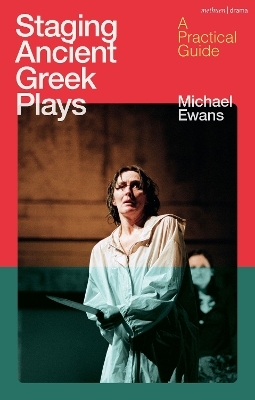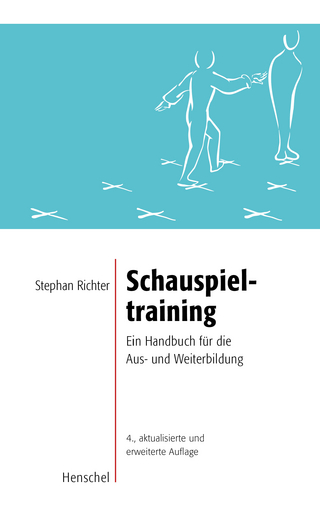
Staging Ancient Greek Plays
Methuen Drama (Verlag)
978-1-350-38131-5 (ISBN)
Considering the conditions of ancient Greek performance and the conventions of the Greek theatre, the book examines large questions, including those related to ancient Greek values, myth and the individual (‘characterization’), and the gods and fate – all of which must be taken into consideration when approaching a contemporary production.
This practical guide also explores with analysed examples, the issues that today's theatre-makers should consider in order to successfully stage ancient Greek drama.
These topics include:
- choice of translation
- setting
- costumes
- masks
- mode of delivery
- acting style for both tragedy and comedy
- handling of the chorus
- solutions to staging Greek drama
Michael Ewans is Conjoint Professor of Drama in the School of Humanities, Creative Industries and Social Science at the University of Newcastle, Australia. His many publications include translations with theatrical commentaries of plays by Aeschylus, Sophocles, Euripides and Aristophanes. He is active in production, and has recently directed professional performances in his own translations of Theocritus’ Love Magic, Euripides’ Medea and Aristophanes’ Lysistrata. He is also the author of Performing Opera: A Practical Guide for Singers and Directors (Methuen Drama, 2016).
Preface
Notation
Dates
Spelling
Introduction: Adaptation and Interpretation
Chapter One: The Original Conditions of Performance
1.1 The Festivals of Dionysos
1.2 Performance Practice
1.3 The Playing Space
1.3.1 Theatron and Orchestra
1.3.2 The Skene
1.4 Staging Conventions
1.5 Costumes and Masks
1.6 Actors
1.7 The Choros
1.8 ‘Realistic’ or ‘Stylized’?
Chapter Two: Values, Myth and the Individual, the Gods and Moira
2.1 Greek and Modern Values
2.2 Myth and the Individual
2.3 The Gods and Daimones
2.4 Moira
2.5 Comedy
2.6 Modern Performance
Chapter Three: Performing Greek Drama on the Modern Stage
3.1 Translation
3.1.1 Introduction
3.1.2 Desiderata
3.1.3 Comedy
3.2 Setting, Costumes and Masks
3.2.1 ‘Ancient’ or Modern?
3.2.2 Desiderata
3.3 Speech and Song
3.4 Acting
3.4.1 Tragedy
3.4.1.2 Solo Speech
3.4.1.3 Dialogue and Three-actor Scenes
3.4.1.4 Props
3.4.1.5 Conclusion
3.4.2 Comedy
3.4.2.1 The In-Law in The Women’s Festival
3.4.2.2 A lazzo in Frogs
3.4.2.3 Props
3.4.2.4 Conclusion
3.5 The Choros
3.5.1 Introduction
3.5.2 Tragedy
3.5.2.1 A Choral Ode
3.5.2.2 A Lyric Scene
3.5.2.3 A Lyric/dialogue Scene
3.5.2.4 Conclusion
3.5.3 Comedy
3.5.3.1 A Choros Divided
3.5.3.2 The Parabasis
2.5.3.3 Conclusion
3.6 Performing Greek Drama on an End-on Stage
3.6.1 Comedy: Peace (2009)
3.6.2 Tragedy: Medea (2021)
3.6.3 Conclusion
3.7 Adieu
Glossary of Greek words
Recommended reading
Works cited
Appendix 1: Synopses of the Extant Tragedies and Comedies
Appendix 2: Some Audio-Visual Resources
Index
| Erscheinungsdatum | 03.10.2023 |
|---|---|
| Verlagsort | London |
| Sprache | englisch |
| Maße | 129 x 198 mm |
| Themenwelt | Kunst / Musik / Theater ► Theater / Ballett |
| Schulbuch / Wörterbuch | |
| ISBN-10 | 1-350-38131-4 / 1350381314 |
| ISBN-13 | 978-1-350-38131-5 / 9781350381315 |
| Zustand | Neuware |
| Haben Sie eine Frage zum Produkt? |
aus dem Bereich


